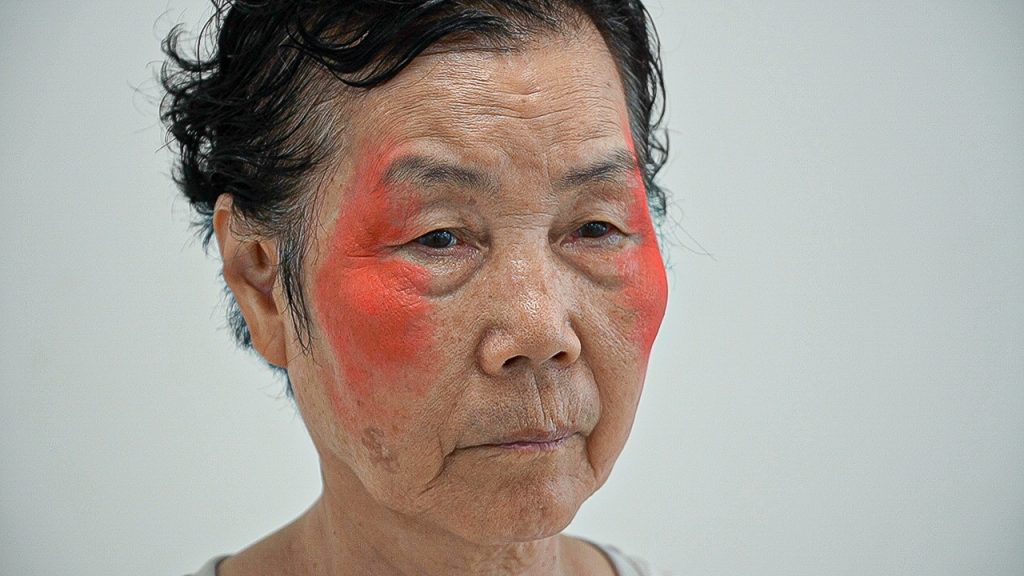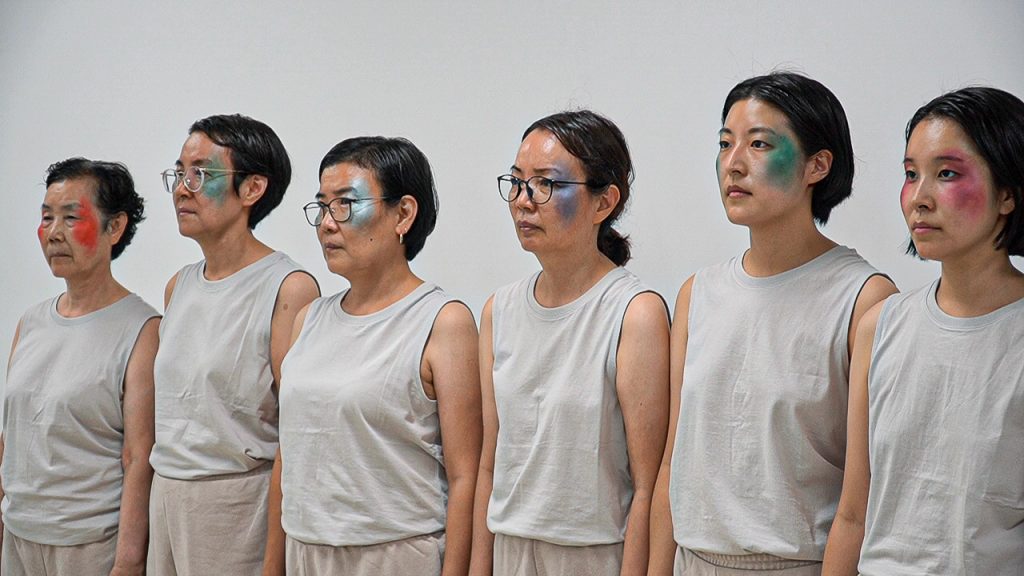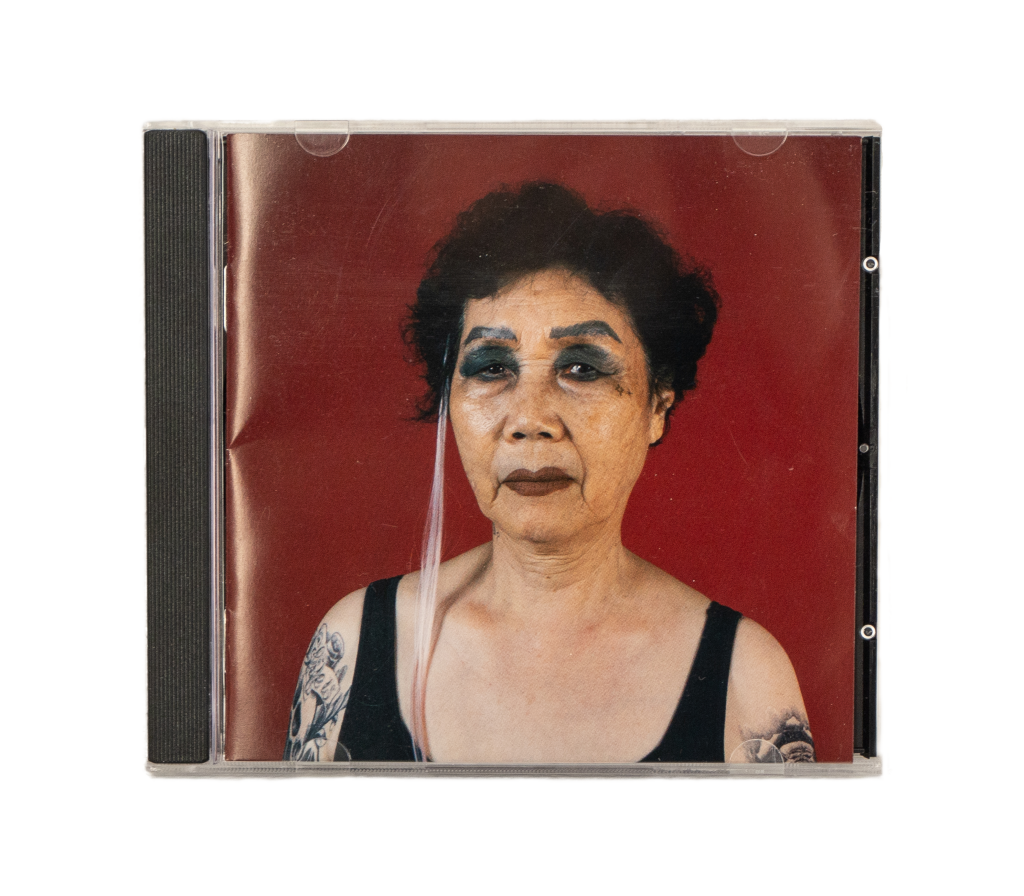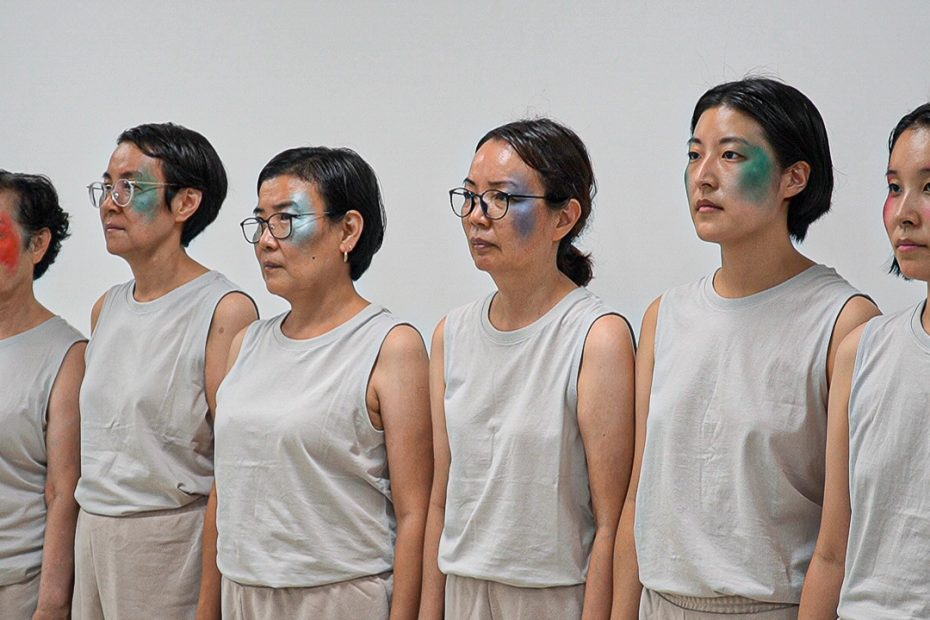Hansol Kim, majoring in Bildende Kunst / Fine Arts in Kunsthochschule Kassel. Currently, she studying in Prof. Bjørn Melhus/ Virtual Realities class. She is someone deeply curious about the environment that has shaped her into who she is today. She engage in creating works that capture ordinary, seemingly insignificant people/events, expressing
them through various mediums like videos, installations, photographs, and performances.
Her short Movie „밥하는 여자들 (Frauen, die Reis kochen), 2022“ was selected for the Golden Hercules Program at the Kassel Film Festival 2023.
Unfortunately, it was unable to conduct a face-to-face or Zoom interview with her, but was able to conduct it in via email.
Can you please explain about the film was screened at this year’s Kassel Film Festival?
In Korean society, the most frequent and deeply rooted labor associated with women’s domestic work over many years is the act of ‚cooking.‘ „Frauen die Reis kochen“ is a performance where women from different generations gather around the inevitable elements of ‚rice‘ and ‚meal‘ within Korean culinary culture. Among the members of our family, women are usually the ones who are always involved in cooking. They are often found near the kitchen, contemplating what meal to prepare. However, in this film, they are depicted not as those who ‚cook‘ but as individuals performing or engaging in actions related to rice or meals. They play with rice, scatter or toss it, or even lie down on it. Their physical portrayal of rice encompasses various emotions and words associated with it, as revealed through a prior survey. Words like burden, responsibility, repetition, and inevitability were prominently featured in their expressions related to rice.
The description of the work says that rice means more than just a meal. What is your personal thoughts on what rice means to life, culture and family? After all, a movie contains a lot of the producer’s thoughts.
For the women depicted in „Frauen die Reis kochen“, ‚rice‘ transcends the mere concept of food. It embodies a sense of responsibility to care for others, a burden ingrained through prolonged learning and repeated domestic labor. Therefore, eating warm white rice represents not just a meal but also an emotional labor for these women, a product of societal conditioning from past eras. I aimed to highlight how this seemingly natural act of consuming rice signifies both an inherent expectation and an unconventional aspect. I wanted to discuss things that have always existed but were either taken for granted due to their perceived naturalness or went unnoticed, a lack of recognition for their value and significance.

The movie tells the story of Grandmother Young-yi Son. Who is she? How did she react after she saw the movie?
She is my grandmother. I showed her the movie several times, but she didn’t provide extensive feedback. She simply said, ‚Thank you for your hard work filming.‘
Performers from different generations appear in the film. What you wanted to talk about through this age diversity?
This film’s performers are actually my female family members—my grandmother, aunts, mother, sisters, and cousins. Through the survey I conducted about rice, it was intriguing to note that married women experienced a shift in their attitudes toward rice from being passive recipients to taking on an active role in cooking after marriage. Before marriage, they would eat rice prepared by someone else, but after marriage, they found themselves in situations where they had to prepare it. Interestingly, younger married women nowadays don’t feel as burdened about having to cook rice, a change that reflects the shifting times. The fascinating differences in perspectives on rice based on age were quite striking. I saw this as a great aspect that allows us to discuss things that are both natural and yet not so obvious, especially considering how perceptions change with different generations.

What did you keep in mind the most while filming? (I think it would have been very difficult to get that much rice in Germany.)
Firstly, the filming took place in Korea. Even there, sourcing rice was quite challenging; we ended up using a total of 80kg of rice. However, the foremost concern was getting my family members, who aren’t professional performers, to understand and commit seriously to the work after convincing them of its significance.
What was the biggest reason why you chose to study in Germany?
I felt that the artistic approach I aspire to aligns more closely with German art than Korean art. For instance, emphasizing the process over the outcome, valuing concepts over polished finishes, even if they appear rugged. My work knows no boundaries in terms of medium. I work not only with film and video but also with various mediums like photography, painting, performance, and more. I choose different mediums for each project based on how well they align with the conceptual essence of the work.
What inspires you and how does it develop until it becomes a work of art?
I believe that the most personal stories can often become the most universal and societal narratives. I also think that the smallest stories can hold the greatest significance. Inspiration comes from various sources; I’m influenced by books, exhibitions, movies, and the works of others. Ideas tend to form as these small influences accumulate. To develop these idea as, I first convince myself in writing why I should pursue them, then I visualize them through drawings or video sketches to give them concrete form. Following this, I lay out specific plans, address emerging questions along the way, and prepare for the work’s completion. Consequently, my creative process tends to be time-consuming due to these meticulous steps.

What kind of work do you want to create next?
I have recently concluded a project titled „K-BOB STAR,“ continuing the worldview of my grandmother, who was the main performer in „Frauen die Reis kochen“. Additionally, I am currently editing a documentary called „Love for Those I Don’t Fully Know“. I plan to explore the situations and people around me by observing them from various perspectives, moving away from a singular viewpoint to create a multifaceted portrayal.
Please recommend one more work of yours.
I always have a special fondness for my most recent work. Therefore, I’d recommend, which I completed this year. It’s a multi-layered exploration of my grandmother, who was inseparable from rice—a work that delves into her as a person.
You can see more of her work here.
von Y. Ji
